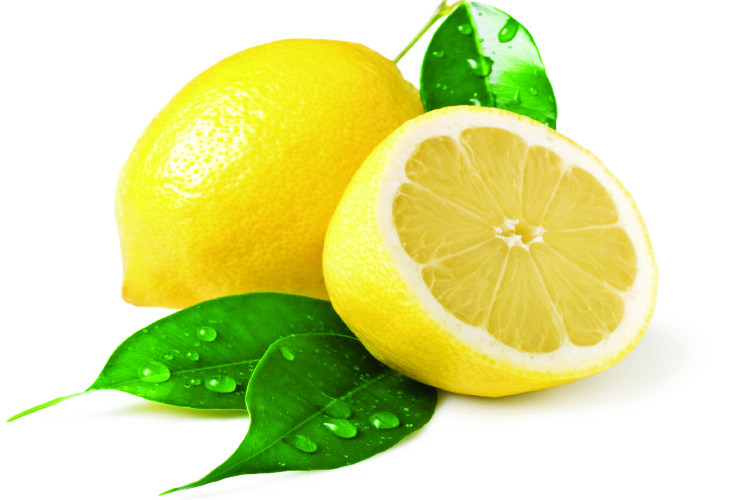Lemon
Lemon (Citrus limon) certainly had its fans throughout history with Alexander the Great taking them on all his conquests and Christopher Columbus making sure he had plenty of them on board when he set sail on his voyage of discovery. The origin of the lemon has not yet been determined, although science suggests it may be northwestern India, where they have been cultivated for more than 2,500 years. A study of the genetic origin of the lemon reported that it is a hybrid between sour orange and citron. The English word for lemon is thought to be derived from the Hindi word lemoen.
- Lemons increase peristalsis in the bowels, helping to create a bowel movement thus eliminating waste and helping with regularity. So, just add the juice of one lemon to warm water and drink first thing in the morning
- Lemons are acidic to the taste but they are alkaline-forming on body fluids helping to restore balance to the body’s pH
- Lemon contains citric acid, which can be effective in treating acne
- The citric acid in lemon juice helps to dissolve gallstones, calcium deposits, and kidney stones.
- Vitamin C in lemons helps to neutralise free radicals linked to ageing and most types of disease
- The symptoms of eye disorders, including diabetic retinopathy have been shown in research to improve due to the rutin, found in lemons
- Lemons have powerful antibacterial properties; experiments have found the juice of lemons destroy the bacteria of malaria, cholera, diphtheria, typhoid and other deadly diseases
- Contains healthy amount of minerals like iron, copper, potassium, and calcium. Potassium, an important component of cell and body fluids helps control heart rate and blood pressure
- The lemon peel contains the potent phytonutrient tangeretin, which has been proven to be effective for brain disorders like Parkinson’s disease
- A good source of B-complex vitamins such as pantothenic acid, pyridoxine, and folates. These vitamins are essential in the sense that body requires them from external sources to replenish
- Lemons contain 22 anti-cancer compounds, including naturally occurring limonene; oil which slows or halts the growth of cancer tumours in animals and flavonol glycosides which stop cell division in cancer cells
- It contains no saturated fats or cholesterol, but is rich in dietary fibre
- Fresh lemon juice added to a large glass of water in the morning is a great liver detoxifier. It also destroys intestinal worms
- Blood vessels are strengthened by the vitamin P (bioflavinoids) in lemon thus prevents internal haemorrhage
- Lemons are rich in vitamin C and flavonoids that work against infections like the flu and colds
- To protect from the threat of scurvy the British Navy requires ships to carry enough lemons so that every sailor could have one ounce of juice daily even till to this day
















